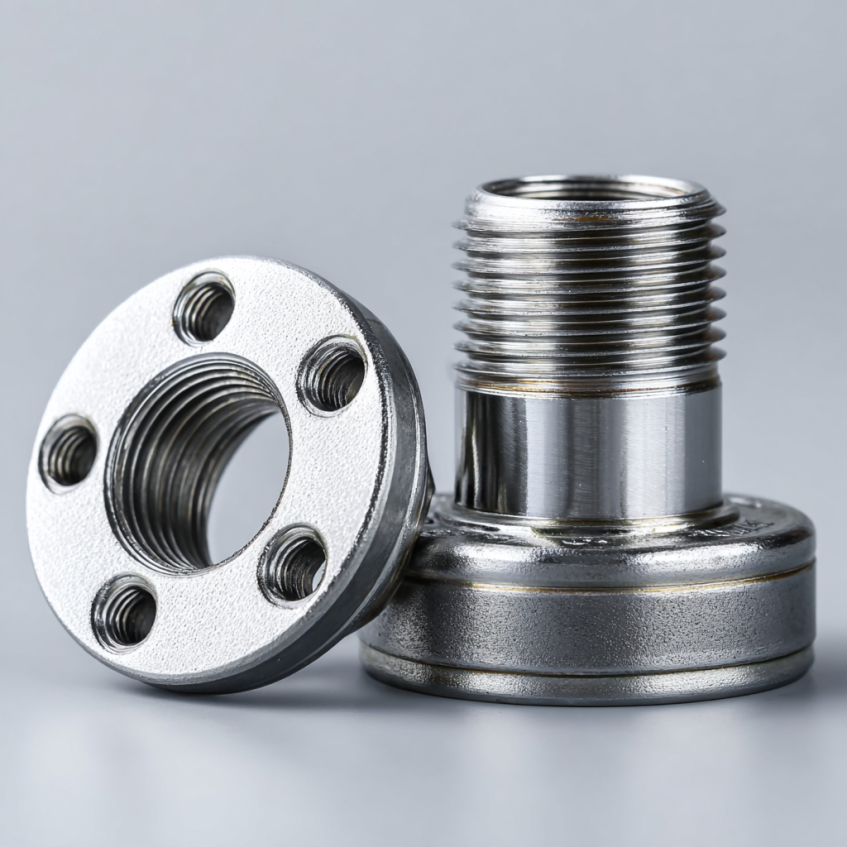In industrial piping systems, flanges and valves are critical components that must meet precise pressure and temperature standards. When specifying or selecting these components, understanding the pressure class, such as CL150 and CL300, is essential to ensure safety, durability, and compatibility.
At Hebei Leading, we specialize in the supply of a wide range of pipeline components, including industrial flanges, valves, and fittings designed for global markets. In this article, we break down the key differences between CL150 and CL300 pressure ratings, how they affect flanges and valves, and how to choose the right one for your project.
The "CL" or "Class" designation refers to the pressure-temperature rating system defined by the American National Standards Institute (ANSI). It indicates the maximum pressure a component can handle at a given temperature.
CL150 (Class 150) and CL300 (Class 300) are two of the most commonly used pressure classes in flanges and valves.
These classes are not measured in PSI directly but rather represent pressure ratings at a reference temperature, usually 100°F (38°C).
Below is a comparison table showing pressure capabilities at various temperatures based on ANSI/ASME B16.5 standards:
| Pressure Class | Pressure at 100°F (38°C) | Pressure at 400°F (204°C) | Pressure at 600°F (316°C) |
|---|---|---|---|
| CL150 | 285 psi (19.6 bar) | 170 psi (11.7 bar) | 115 psi (7.9 bar) |
| CL300 | 740 psi (51.0 bar) | 445 psi (30.7 bar) | 320 psi (22.0 bar) |
Flanges rated for CL150 and CL300 differ not only in pressure capacity but also in design, size, and application.
CL300 pressure rating flanges are thicker and heavier than class 150 pressure rating flanges, allowing them to withstand higher pressures.
Bolt hole diameters and bolt circle diameters may vary.
At Hebei Leading, we supply flanges in various materials:
Carbon steel (A105, A350)
Stainless steel (304/316)
Alloy steel
While both CL150 and CL300 can use similar materials, the material strength directly impacts pressure resistance, especially at elevated temperatures.
| CL150 Flanges | CL300 Flanges |
|---|---|
| Suitable for water supply systems | Used in oil & gas, steam, chemical lines |
| Ideal for low-pressure applications | Designed for medium to high-pressure |
| Cost-effective for general industry use | Preferred for critical infrastructure |

Pressure class ratings are also applied to valves such as gate valves, globe valves, and check valves. Choosing the right class ensures the valve maintains integrity under pressure.
Sealing performance: Higher class valves (CL300) are built with stronger seals and thicker bodies to prevent leakage under high pressure.
Wall thickness: CL300 valves are manufactured with heavier wall sections to endure greater internal stress.
Bolted or welded construction: CL300 valves often include reinforced bolted bonnets or fully welded designs.
At Hebei Leading, our valve systems are engineered to match ANSI class specifications and undergo hydrostatic testing, material certification, and dimensional inspection before shipment.
| Parameter | CL150 Flange/Valve | CL300 Flange/Valve |
|---|---|---|
| Pressure Capacity | Up to 285 psi (at 100°F) | Up to 740 psi (at 100°F) |
| Wall Thickness | Thinner | Thicker |
| Weight | Lighter | Heavier |
| Material Options | Carbon steel, stainless steel | Same, with more reinforcement |
| Typical Use | Water, air, low-pressure gas | Steam, oil, high-pressure gas |
Here are some guiding principles:
Operating pressure is low to moderate
Application involves non-corrosive, ambient temperature media
Cost is a major factor
System pressure exceeds 400 psi
Operating temperatures exceed 200°C
Application is mission-critical (e.g., steam lines, refineries, offshore rigs)
With over 20 years of manufacturing and export experience, Hebei Leading supplies a full range of ANSI/ASME standard flanges and valves, including both CL150 and CL300 options.
Strict compliance with ANSI B16.5 / B16.34
ISO 9001 certified quality management
Custom dimensions, coatings, and markings
Exported to over 30 countries, including Europe, the Middle East, and South America
Visit our Products page to explore pressure-rated flanges, valves, and pipe fittings.
Whether your project requires CL150 or CL300 flanges and valves, selecting the appropriate pressure class is critical for safety, efficiency, and regulatory compliance. While CL150 suits general, low-pressure applications, CL300 is the better option for demanding environments with higher pressure and temperature.
Hebei Leading offers both classes with certified quality, global shipping, and full technical support. Contact us today to request a quote or discuss your specific needs with our engineering team.
 Call us on:
Call us on:  Email Us:
Email Us:  No.68 Hezuo Road, Shijiazhuang City, Hebei Province, China
No.68 Hezuo Road, Shijiazhuang City, Hebei Province, China 